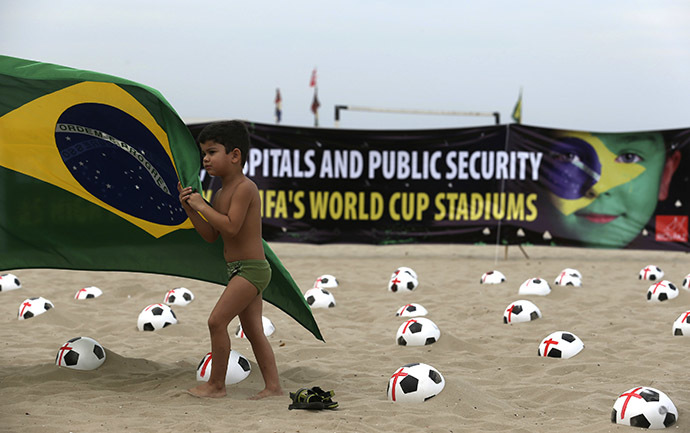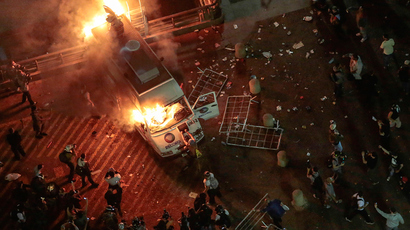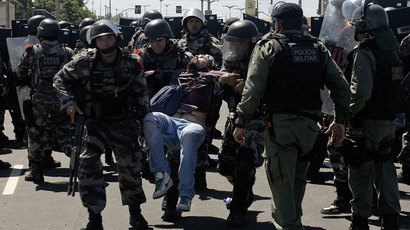Over 250,000 protesters flood Brazilian streets rallying against corruption (VIDEO, PHOTOS)
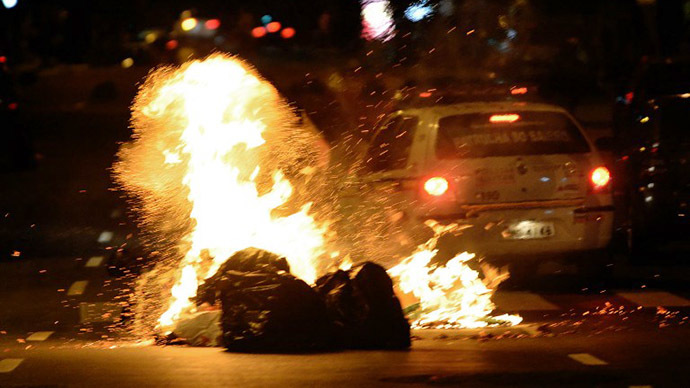
More than a quarter of a million Brazilians marched through the streets of more than 100 Brazilian cities, protesting government corruption. A new poll shows that 75 percent of citizens support the demonstrations.
Demonstrations were punctuated with outbursts of violence in some
cities as police cracked down on activists with rubber bullets
and tear gas.
In the cities of Belo Horizonte and Salvador the protests
descended into violence as activists scuffled with police, while
the vast majority of demonstrations were peaceful.
The protests were initially triggered by a transport fare rises,
and then the demonstrators turned to issues like poor services,
World Cup spending, and, finally, widespread government
corruption.
Throughout the week of protests, the crowds largely consisted of
the young and middle class.
The protests have become the largest public demonstrations Brazil
has seen in twenty years.
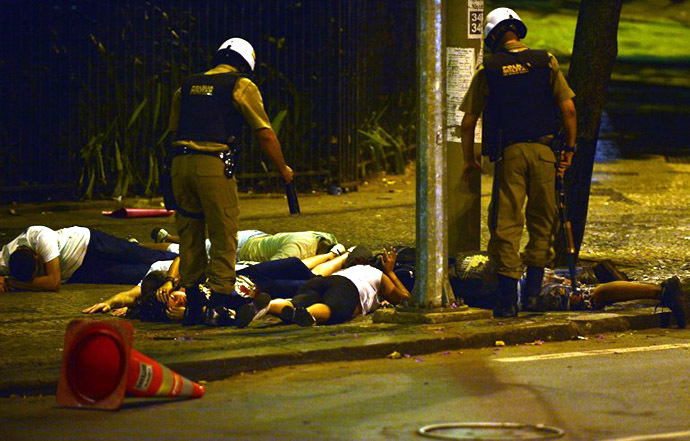
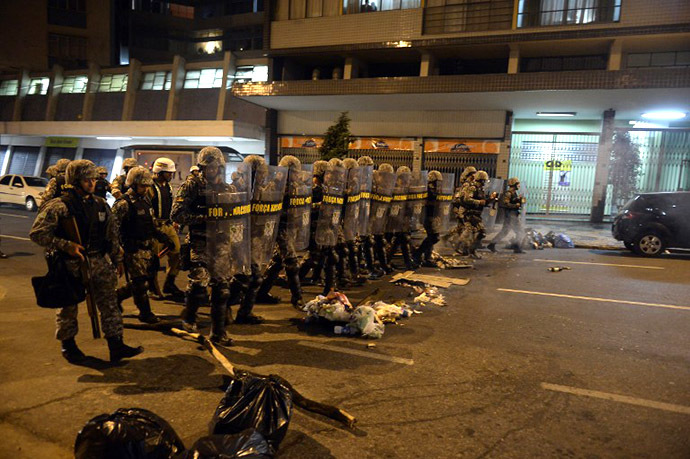
On Saturday, protesters denounced congressional legislation,
known as PEC 37, that would limit the power of federal
prosecutors to investigate crimes, and many Brazilians express
concern that the law would make it harder to put corrupt
politicians behind bars.
On Friday, the country’s President Dilma Rousseff addressed the
nation on prime-time television, saying that peaceful protests
were welcome and emphasized that she would not condone
corruption.
She stressed she would meet with movement leaders and create a
plan to improve urban transportation and use oil royalties for
investment in education.
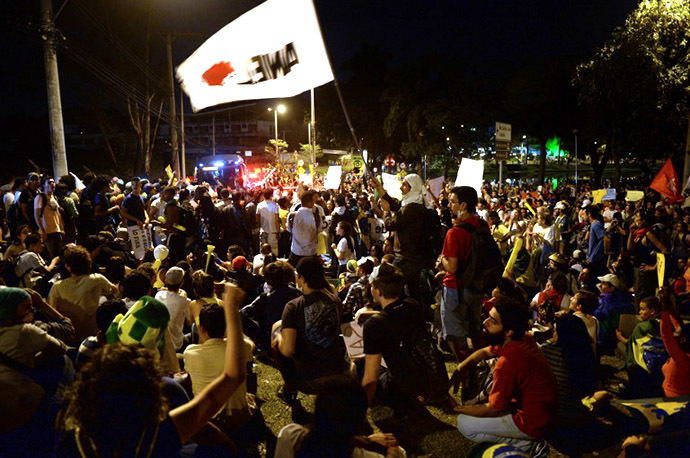
"Dilma is underestimating the resolve of the people on the
corruption issue," Mayara Fernandes, a medical student who
took part in a march in Sao Paulo, told AP. "She talked and
talked and said nothing. Nobody can take the corruption of this
country any more."
A new poll by the respected Ibope Institute shows the majority of
Brazilians support the protesters rather than the country’s
leader. The research, which involved over a 1,000 people from
across Brazil, revealed that 75 per cent of the population
support the rallies.
